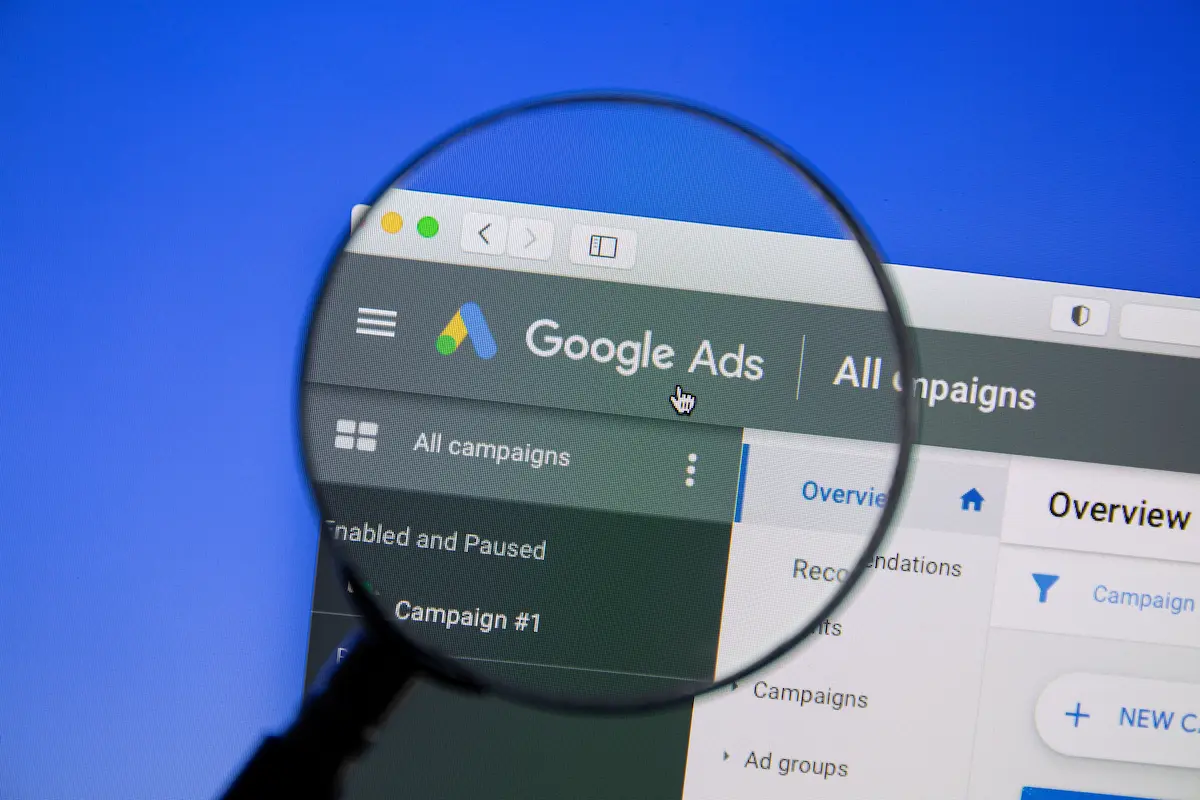The web is full of articles trying to explain Search Engine Optimisation (also referred to as SEO). Articles that vary wildly in opinions and use a variety of confusing terms like ‘link building’, ‘quality content’… and the list just keeps going. Generally, these articles end by saying, just call us if you need professional SEO help!
But don’t worry – you’ve come to the right place!
This article will help you understand what SEO actually is. And yes, if you need professional SEO help, call us – it’s our job! But we only want you to enlist our help after you thoroughly understand search engine optimisation and its benefits to your business.
First up, what is a search engine?
To understand search engine optimisation, we firstly need to understand search engines.
You’ve no doubt heard of Google and probably know of Bing, Yahoo! and maybe even Yandex. These are what we call ‘search engines’. Why? Because you go to these sites, type in something, and it spits out results related to your query.
We often take this for granted – when you want to find a local café, you simply speak to Google or Siri and say ‘where’s a café near me?’, and when you want to know the weather or the status of a flight, you simply type it in and you get your answer straight away! In fact, I’m sure my IQ drops by 20 when I’m not connected to the internet!
But have you ever wondered, how does Google actually work? How does it actually know what you mean and then pull up the correct answer almost every single time?
To be honest, this is a simple question with a very complicated answer. Understandably, Google has kept their recipe (algorithm) of finding the right answers top secret. But we can compare Search engines such as Google to a very smart librarian – how can librarians find the right book in such a short period of time despite their being aisles and aisles of books?
You may think – simple! The books are sorted according to categories and they have an ISBN! And that’s true. Similarly, search engines scan through the internet, coming across websites, social media and almost everything they can get their hands on. They then proceed to categorise all this information to form some sort of library.
In fact, Google’s mission statement is just that… “to organise the world’s information and make it universally accessible and useful.” It’s a giant library with very smart curators! Google explains how search works quite nicely here.
So how do search engines affect your business?
It’s likely the search engines have already or will scan your website (we call that scanning of a website a ‘crawl’)! Your website then gets categorised.
This is where the impact to your business begins…
When people search for things your business offers, if your website is deemed relevant enough, it may pop up into the search results.
For example, if you sell t-shirts, Google will see that and when people type in ‘t-shirts for sale’, your website may pop up in the search results.
Some of these people will then go to your website and they may even buy from you! Sounds great doesn’t it? Well where there’s free chips, there’s also a lot of seagulls!
The problem is this – there’s many websites and businesses that sell t-shirts! So how do you get your website to pop up higher in the list (and thus get more people clicking through to your website)? How do you become the seagull that gets the chip rather than the one that squawks for nothing? This is especially important when people coming to your website equates to leads and sales for your business!
And this is what search engine optimisation actually is!
Many companies put up all sorts of smoke and mirrors to make SEO seem all too complicated in the hopes that you simply sign up to their contracts. See why you shouldn’t be signing an SEO contract here.
But simply put, search engine optimisation is aligning your website to exhibit features and signals that search engines use to decide on who ranks as most relevant!
Google is by far the world’s most used search engine, so they are often used as the benchmark. Google’s algorithm(s) for search is constantly evolving to improve their service to the world! At the time of writing, there is actually over 200 different factors that Google considers within its search algorithm to determine what ranks where! Google even utilises artificial intelligence as part of its algorithm!
So how do you optimise your website with these 200+ factors in mind?
This is where it gets a little tricky. It’s like saying ‘how do you get your car to run better?’ or ‘what style of dress suits me?’. There’s heaps to consider!
The wisest approach to search engine optimisation involves two main principles:
1. Knowing your customers and potential customers
You need to truly know your customers and how they search for the things you offer, so you can aim for the correct search terms used by them! Remember, Google is a librarian looking to help the user, not publicise a certain book! So Google isn’t biased to a book with a shiny cover – it’s biased towards a book with good and relevant information!
Thus, you need to know the thought processes and lingo of your customers. Your website and its content must fulfil the needs of your customers in a memorable way. If you make your website as unique and catchy as the book “Guinness World Records”, then you’re well on the way to catering to the needs of your users and ranking well in search engine search results – your website and other online properties need to be user centric – focused on your actual customers and their needs and wants; not what you think your customers need and want.
2. Aligning your website’s objective with Google’s objective
Google is looking for useful information. Thus, your website should also be engaging and useful! It needs to be attractive and easy to use. You’ll often hear the term ‘user experience’.
Basically, your website needs to fulfil users’ needs as easily and as engagingly as possible. This is so that they don’t leave to find their requested information elsewhere.
Google actually notices how long people spend on your page, and this is a factor that gets your website ranking (or not). So if you focus on making your website great for your users, you’re off to a good start to making it attractive for Google and other search engines!
Some main factors to consider for SEO
Other factors include how much people are talking about your website! Many SEO companies call these ‘links’, online places where people link to your website.
Be careful not to engage in any contracts that involve artificial link building – search engines work hard to detect bad quality links and may penalise your ranking if they find them. It’s like that seagull that squawks too much so you shoo it off and give chips to the other, peaceful seagulls.
You want your website to be so cool that people are just moved to mention it! You’ll then get mentions on Facebook (and other social media) as well as other websites (like forums, blogs and other businesses) and these will naturally link to your website! They’re the links you’re looking for!
In summary, you’ll notice two things here:
- Great content and
- Good mentions (or links)
Another thing to consider is this – have you ever clicked on a website and it doesn’t load fast, and within a few seconds you’re clicking back to find another website?
Well, people will do that to your website if it’s slow too! It’s a tough world out there so your website needs to be lean and mean – and that means fast! You’ll see many studies showing that if a website takes longer than 3 seconds to load (on mobile devices – don’t even mention the patience of PC users), you’ve lost half your potential audience! And don’t even bother if your website takes longer than 7 seconds to load!
So, you also need to consider the speed of your website, particularly for mobile connections.
Google also considers the authority of your website and brand. This involves how long you’ve been around and how much of an expert you are in your field. You need to be seen as genuine and not spam! Generally, the older and more established your brand online, the better standing you have!
To recap, other important factors to incorporate in your website:
- Site speed
- Authority and reliability
How to get started with SEO
In my opinion, a big factor in determining your likelihood to rank for search relevant to your business is how passionate you are about your business and how you reflect this online.
Focus on how you help your customers and make it a memorable experience for them. This puts you on the right footing towards successful SEO. Meanwhile, those only focused on making a buck who don’t care for the customer are going to fall into the spam basket!
Bear in mind, if you engage a marketing or SEO company, their attitude becomes your attitude in the eyes of search engines! You get what you pay for, no matter how glamorous the packaging!
Just as any restaurant can be judged by the cleanliness of their kitchen, SEO companies can be judged by the cleanliness of their practices. So, if you like the cheap, sweat-shop style restaurants and warungs in Bali (and there’s nothing wrong with that, just don’t complain when it goes through you faster than scheduled), there’s plenty to choose from by outsourcing overseas. You can also buy the link building contractors (we suggest you don’t) and get links to you that are listed alongside escorts and Viagra. Just don’t be surprised if Google responds with a bone to pick!
Rather, express your enthusiasm and energy for your business into your website and other online media. Set up a blog answering questions commonly asked by your customers, focus on making their experience with your business exciting. Make your website fast, fun and fantastic, and you’ve begun optimising for search engines!
Some business owners are a little shy to big note themselves but you need to overcome this and mention what you’re good at online – introduce people to yourself (put a face behind the business). View this, not as showing off, but as providing opportunity to others to truly find the answer to their needs!
Remember – good and memorable content (which will also get you good links), a fast website and a reliable reputation!
How to succeed with SEO
As with all marketing, carefully channeled effort is required to succeed in SEO. This is especially the case if there’s many competing websites vying for the same audience!
To successfully achieve good rankings and channel many users to your website, you’ll need to pay close attention to all of the currently known ranking factors in a balanced manner.
Often, succeeding in SEO requires constant and careful attention, knowing and understanding the latest in how search engines work.
This is the bit where we come in! We are passionate about what we do, and we are passionate about making your business grow through SEO and other means. You’ll notice that we’re not about how many clients we get, but rather how successful each of our clients are. So, if you’re serious about getting results, not links, ask us to meet you for a coffee and have a chat – don’t mention my name but my boss will even shout!
Whether you go it alone or engage a marketing company *cough* err, us, we hope this article helps in guiding you to success and that you ultimately realise your goals! May you be the happy seagull flying into the sunset with many chips in your tummy!








